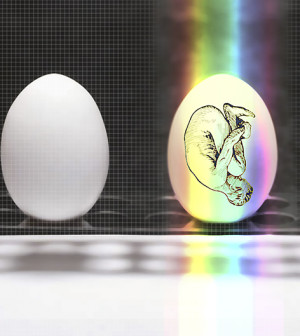- Could Your Grocery Store Meat Be Causing Recurring UTIs?
- Are You Making This Expensive Thermostat Error This Winter?
- Recognizing the Signs of Hypothyroidism
- 10 Strategies to Overcome Insomnia
- Could Artificial Sweeteners Be Aging the Brain Faster?
- Techniques for Soothing Your Nervous System
- Does the Water in Your House Smell Funny? Here’s Why
- Can a Daily Dose of Apple Cider Vinegar Actually Aid Weight Loss?
- 6 Health Beverages That Can Actually Spike Your Blood Sugar
- Treatment Options for Social Anxiety Disorder
Don’t Ban Anonymous Sperm Donations: Study

Prohibiting anonymous sperm donations might lead to fewer donors and prompt those still willing to donate to ask for higher fees for donations, researchers report.
While sperm donor anonymity is the norm in the United States, a number of other countries have banned anonymous donations.
Most of those countries require all sperm donors to put identifying information into a registry available to the donor-conceived children by the time they reach the age of 18, the researchers explained.
“Donor-conceived children across the world have clamored for the right to have identifying information on their sperm and egg donors,” said study author Glenn Cohen. He is faculty director of the Petrie-Flom Center for Health Law Policy, Biotechnology and Bioethics at Harvard University.
To assess the potential impact of banning anonymous sperm donation in the United States, Cohen’s team surveyed 67 active and 94 inactive U.S. donors. Of those men, 90 were anonymous donors and 71 were identified donors.
About 29 percent of the donors said they would refuse to donate if donor identification became mandatory, and the rest of the donors said they would demand between $40 to $102 more per donation.
The study was published recently in the Journal of Law and the Biosciences.
“To understand whether systems requiring the sharing of that information are a good policy, we need considerable data on the effects of such law changes and our study fills that gap,” Cohen said in a journal news release.
More information
The National Infertility Association has more on donor sperm.
Source: HealthDay
Copyright © 2026 HealthDay. All rights reserved.










